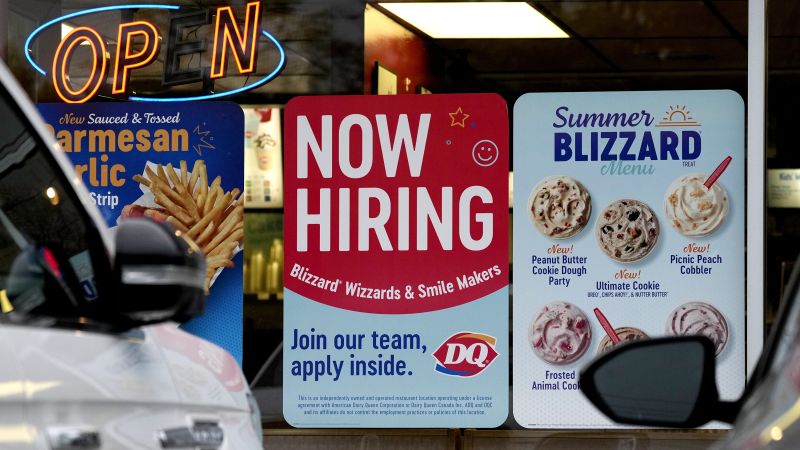- cross-posted to:
- [email protected]
- cross-posted to:
- [email protected]
Shit be crazy.
Everything is expensive, nobody has any money - America’s economic miracle is insanely high consumer spending, so we decided to stop giving consumers money so corporations could keep more of it (gotta buy back that stock) shit has finally started hitting the fan and if we crush the interest rates or do a huge tax cut right now we might be able to blow past having a recession and manage to make it into depression territory.
What a time to be alive. Yay.
Honestly, we need boomers to hurry up and die so we can try and get a working economy again, their political interests lie with perpetual stock price boosting to the detriment of everything else and it’s not fucking healthy.
I don’t think it was your average boomer who decided that the stock market should be the be-all-end-all of the whole economy.
I feel like there’s a growing understanding that the economy has nothing to do with the majority of our lives. For example, recession indicators, at least in the US, don’t include cost of living and inflation. Low employment doesn’t mean shit to me if the price of groceries grows faster than my salary. Large numbers of open jobs doesn’t mean shit to me if employers can justify lower wages because the market is flooded from layoffs. A high salary across the board doesn’t mean shit to me if I can’t afford a house on the wage, forcing me to dump increasingly larger portions of my pay on renting an asset I can never own.
But there’s a slew of red flags right now — like a large and growing share of people, particularly Gen Zers, taking on such high levels of credit card debt to cover their spending that lenders have stopped loaning more money to them.
So what are they spending on? Someone must have profiled this, like off credit card data and retailer data or something.
kagis
When asked how the current economy has changed their spending habits, groceries and mobile phone/wireless were the only two categories where Gen Z is spending more than they have in the past. Take-out/food delivery, gaming, electronics, and online news experienced the greatest pullback in spending, with 36% or more of Gen Z saying they are spending less in these categories.
Millennials and Gen Z’s trendy new splurge: groceries
Gen Z, meanwhile, said they often choose high-quality snacks and beverages, which makes for expensive grocery bills.
One 23-year-old Gen Zer told Business Insider by text that he spends about $130 on groceries for a week and a half. “Fancy sodas and drinks” and “random snacks at Trader Joe’s” account for the bulk of the bill. He also said he spends about $35 on protein bars.
The success of the canned water brand Liquid Death is an example of young people’s willingness to spend on flashy food and beverages. The brand shot up to a valuation of $1.4 billion thanks to a recent round of funding, Forbes reported. Peter Pham, an investor in Liquid Death, previously told Business Insider that part of the brand’s success comes from its appeal to younger generations.
“The healthy food-and-beverage space has historically been a stale category filled with boring brands,” Pham told BI. “This creates a lightning-in-a-bottle moment for disruptive brands who know how to tap into culture and talk to Gen Z and digital natives.”
Huh.
Well, I guess racking up a lot of debt for any reason isn’t ideal (well, okay, unless it tends to have a positive return on investment, like education). But I suppose that as luxury spending goes, there are probably probably worse things that Gen Zers could be spending on than marked up groceries. Doesn’t really translate into some kind of ongoing costs. The examples that are given don’t sound particularly unhealthy. It’s not one massive one-off load of debt; they have time to pull back if it gets problematic.
“Liquid Death” appears to just be carbonated water in a can. If you count externalities relative to, I dunno, beer or something like that, it may compare favorably. And I suppose that if they’re doing well selling it, maybe they’ll have a bunch of competition, drive prices down.
kagis
And at least on Amazon, it looks like it’s not all that much more than soda, anyway.
So you’ve got spending on – maybe somewhat-marked-up – healthy food and phones, which you can arguably call a tool with a positive return. I think that society will probably survive.
Liquid Death is generally overpriced compared to similar “unsweetened” seltzers, but that is also an avocado toast-level chastisement of young people as if that’s the real issue.





